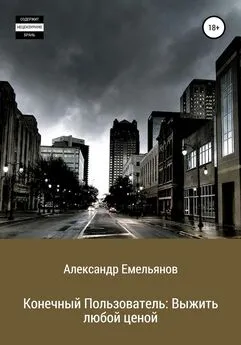Пользователь - o 3b3e7475144cf77c
- Название:o 3b3e7475144cf77c
- Автор:
- Жанр:
- Издательство:неизвестно
- Год:неизвестен
- ISBN:нет данных
- Рейтинг:
- Избранное:Добавить в избранное
-
Отзывы:
-
Ваша оценка:
Пользователь - o 3b3e7475144cf77c краткое содержание
o 3b3e7475144cf77c - читать онлайн бесплатно полную версию (весь текст целиком)
Интервал:
Закладка:
of the accursed race. Among the music-lovers Hansi would be all right, for these were "good
Europeans," who for a couple of centuries had been building up a tradition of
internationalism. A large percentage of Europe's favorite musicians had been Jews, and there
would have been gaps in concert programs if their works had been omitted.
Was the audience trying to say this by the storms of applause with which they greeted the
performance of Mendelssohn's gracious concerto by a young Jewish virtuoso? Did Hansi have
such a message in his mind when he played Bruch's Kol Nidrei as one of his encores? When
the audience leaped to its feet and shouted, "Bravo!" were they really meaning to say: "We are
not Nazis! We shall never be Nazis!" Lanny chose to believe this, and was heartened; he was
sure that many of the adoring Rheinlanders had a purpose in waiting at the stage door and
escorting the four young people to their car. But out in the dark street, with a cold rain
falling, doubts began to assail him, and he wondered if the amiable Rhinelanders had guns for
their protection.
However, no Nazi cars followed, and no Stormtroopers were waiting at the Hotel Monopol.
Next morning they drove to the border, and nobody searched Hansi's two violin cases for
dynamite. They went through the routine performance of declaring what money they were
taking out of the country, and were then passed over to the Belgian customs men. Lanny
remembered the day when he had been ordered out of Italy, and with what relief he had
seen French uniforms and heard French voices. Eight years had passed, and Benito, the
"Blessed Little Pouter Pigeon," was still haughtily declaring that his successor had not yet been
born. Now his feat was being duplicated in another and far more powerful land, and rumors
had it that he was giving advice. In how many more countries would Lanny Budd see that
pattern followed? How many more transformations would it undergo? Would the Japanese
conquerors of Manchuria adopt some new-colored shirts or kimonos? Or would it be the Croix
de Feu in France? Or Mosley's group in England? And if so, to what part of the world would
the lovers of freedom move?
VIII
The tall slender figure of Hansi Robin stood before the audience in the symphony hall; an
audience of fastidious Parisians whose greeting was reserved. In the front row sat Lanny,
Irma, and Bess, greatly excited. Hansi's appearance was grave and his bows dignified; he
knew that this performance was an important one, but was not too nervous, having learned
by now what he could do. The conductor was a Frenchman who had given a long life to the
service of the art he loved; his hair had grown white, and what was left of it stood out as a
fringe under his shiny bald pate. He tapped upon the edge of his stand and raised his baton;
there came four beats of the kettledrum, followed by a few notes of a timid marching song;
then four more beats, and more notes. It was Beethoven's violin concerto.
Hansi stood waiting, with his instrument in the crook of his arm and his bow at his side; the
introduction is elaborate, and not even by a movement of his eyes would he distract anyone's
attention from the sounds. Lanny Budd, in the front row with his wife and Bess, knew every
note of this composition, and had played a piano transcription of the orchestral part for Hansi at
Les Forêts, on that fateful day seven years ago when Bess had first met the shepherd boy out of
ancient Judea and fallen under his spell. That was one reason why Hansi made a specialty of
this concerto; love infused his rendition, as love has a way of doing with whatever it touches.
The march acquired the firm tread of Beethoven; the orchestra thundered, and Lanny
wanted to say: "Careful, Maestro. He didn't have so many instruments!" But the conductor's
expressive hands signed for gentleness as Hansi's bow touched the strings. The song floated
forth, gay yet tender, gentle yet strong-those high qualities which the soul of Beethoven
possessed and which the soul of Hansi honored. The fiddle sang and the orchestra made
comments upon it; various instruments took up the melody, while Hansi wove embroidery
about it, danced around it, over and under it, leaping, skipping, flying in feats of gay
acrobatics. A concerto is a device to exhibit the possibilities of a musical instrument; but at its
best it may also illustrate the possibilities of the human spirit, its joys and griefs, toils and
triumphs, glories and grandeurs. Men and women plod through their daily routine, they
become tired and insensitive, skeptical or worse; then comes a master spirit and flings open
the gates of their being, and they realize how much they have been missing in their lives.
For more than twenty years this sensitive young Jew had consecrated himself to one special
skill; he had made himself a slave to some pieces of wood, strips of pig's intestine, and hairs
from a horse's tail. With such unlikely agencies Beethoven and Hansi contrived to express the
richness, elegance, and variety of life. They took you into the workshop of the universe,
where its miracles are planned and executed; the original mass-production process which
turns out the myriad leaves of trees and the petals of flowers, the wings of insects and birds,
the patterns of snow crystals and solar systems. Beethoven and Hansi revealed the operation of
that machinery from which color and delicacy, power and splendor are poured forth in
unceasing floods.
Lanny had made so many puns upon the name of his brother-in-law that he had ceased to
think of them as such. There was nothing in the physical aspect of Hansi to suggest the robin,
but when you listened to his music you remembered that the robin's wings are marvels of
lightness and grace, and that every feather is a separate triumph. The robin's heart is strong,
and he flies without stopping, on and on, to lands beyond the seas. He flies high into the upper
registers, among the harmonic notes, where sensations are keener than any known upon earth.
The swift runs of Hansi's violin were the swooping and darting of all the birds; the long trills
were the fluttering of the humming-bird's wings, purple, green, and gold in the sunlight,
hovering, seeming motionless; each moment you expect it to dart away, but there it remains, an
enchantment.
IX
Hansi was playing the elaborate cadenza. No other sound in the auditorium; the men of the
orchestra sat as if they were images, and the audience the same. Up and down the scale rushed
the flying notes; up like the wind through the pine trees on a mountain-side, down like
cascades of water, flashing rainbows in the sunshine. Beethoven had performed the feat of
weaving his two themes in counterpoint, and Hansi performed the feat of playing trills with
two of his fingers and a melody with the other two. Only a musician could know how many
years of labor it takes to train nerves and muscles for such "double-stopping," but everyone
could know that it was beautiful and at the same time that it was wild.
The second movement is a prayer, and grief is mixed with its longing; so Hansi could tell
those things which burdened his spirit. He could say that the world was a hard and cruel
place, and that his poor people were in agony. "Born to sorrow—born to sorrow," moaned the
wood-winds, and Hansi's violin notes hovered over them, murmuring pity. But one does not
weep long with Beethoven; he turns pain into beauty, and it would be hard to find in all his
treasury a single work in which he leaves you in despair. There comes a rush of courage and
determination, and the theme of grief turns into a dance. The composer of this concerto,
humiliated and enraged because the soldiers of Napoleon had seized his beloved Vienna, went
out into the woods alone and reminded himself that world conquerors come and go, but love
and joy live on in the hearts of men.
"Oh, come, be merry, oh, come be jolly, come one, come all and dance with me!" Lanny
amused himself by finding words for musical themes. This dance went over flower-strewn
meadows; breezes swept ahead of it, and the creatures of nature joined the gay procession,
birds fluttering in the air, rabbits and other delightful things scampering on the ground. Hand
in hand came young people in flowing garments. "Oh, youths and maidens, oh, youths and
maidens, come laugh, and sing, and dance with me!" It was the Isadora rout that Lanny would
always carry in his memory. When the storm of the orchestra drowned out Hansi's fiddle, the
listener was leaping to a mountain-top and from it to the next.
Others must have been having the same sort of adventure, for when the last note sounded
they started to their feet and tried to tell the artist about it. Lanny saw that his brother-in-law
had won a triumph. Such a sweet, gentle fellow he was, flushed from his exertions, but even
thinner than usual, showing the strain under which he was living. People seemed to realize
that here was one who was not going to be spoiled by adulation. He wasn't going to enjoy
himself and his own glory, he would never become blase and bored; he would go on loving his
art and serving it. Nobody in that hall failed to know that he was a Jew, and that this was a
time of anguish for his people. Such anti-Semitism as there was in Paris was not among the
art-lovers, and to shout "Bravo!" at this young virtuoso was to declare yourself for the cause
of freedom and human decency.
Lanny thought about the great composer, friend of mankind and champion of the oppressed.
His concerto had been played badly in his own lifetime, and what a revelation it would
have been to him to hear it rendered by a soloist and a conductor, neither having a score. But
then Lanny thought: "What would Beethoven think if he could see what is happening in the
land of his birth?" So the dreams of art fled, and painful reality took their place. Lanny
thought: "The German soul has been captured by Hitler! What can he give it but his own
madness and distraction? What can he make of it but an image of his distorted self?"
X
Hansi always wanted to be taken straight home after a performance; he was exhausted, and
didn't care for sitting around in cafes. He entered the palace and was about to go to his room,
when the telephone rang; Berlin calling, and Hansi said: "That will be Papa, wanting to know
how the concert went."
He was right, and told his father that everything had gone well. Johannes didn't ask for
particulars; instead he had tidings to impart. "The Reichstag building is burning."
"Herrgott!" exclaimed the son, and turned and repeated the words to the others.
"The Nazis are saying that the Communists set fire to it."
"But, Papa, that is crazy!"
"I must not talk about it. You will find the news in the papers, and do your own guessing. The
building has been burning for a couple of hours, and they say that men were seen running
through it with torches."
"It is a plot!" exclaimed Hansi.
"I cannot say; but I am glad that you are not here. You must stay where you are for the
present. It is a terrible thing."
So Hansi did not go to bed for a long while. They sat and talked, and Lanny, who had
friends on Le Populaire, called up that paper to get further details. It was believed that the
Читать дальшеИнтервал:
Закладка:




